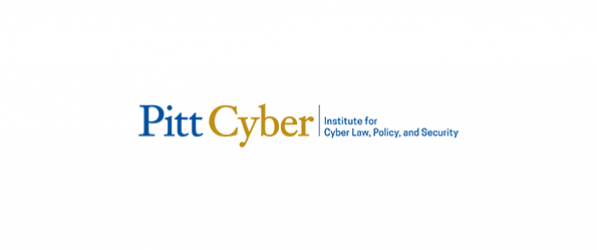AI and the Workforce Edition: This week we're doing some thinking about what workforce development and education should look like in the age of AI. With that in mind, we've compiled some of the best 'future of work' reports, from the rosy predictions of huge productivity gains, to those forecasting the ultimate decoupling of work and income.
How AI could explode the economy | Vox
Vox has a really excellent recap of research exploring the idea that AI could enable "exponential growth" - estimated by some scholars to be between 20 and 30 percent annually, implying an doubling of the economy every 2.5 years. Growth of this scale is pretty hard to even fathom, but its nonetheless a fascinating read. One is left with the impression that labor becomes increasingly irrelevant in the exponential growth scenarios, begging the question of what the purpose is of growth if the majority of people don't benefit?
This just-released series of papers offers varying perspectives on AI's forecasted impact on jobs. We recommend the paper by Daron Acemoglu, in which he rejects the assumption that AI will necessarily bring broadly beneficial gains in productivity. Rather, he argues: "bad automation reduces employment growth, fails to deliver worthwhile benefits to productivity, and has negative distributional consequences. Over the past 40 years, we have seen more bad automation than good. I predict AI will continue this trend, although there is no technological necessity for it to do so." He argues in favor of policy changes that would incentivize companies to prioritize investment in workers, rather than automation. He goes so far as to argue that historically, the gains often attributed to technological innovation actually came from social and political struggles that arose in response to said technologies.
Generative Artificial Intelligence and the Workforce | Burning Glass Institute
Burning Glass Institute is quintessentially data driven (and generates the go to dataset of job postings used for labor market analysis). That makes the diagnoses of this report all the more startling, leaving readers with a deeply uncomfortable view of the future: although AI will augment and transform some jobs, a significant number of white collar, college educated jobs will be automated by AI. Absent a tremendous overhaul of the social welfare system, the report warns that the middle/upper class will face large scale unemployment. The report calls on employers to engage AI labor force changes thoughtfully and avoid large scale layoffs, but relying on the goodwill of big business seems tenuous. This report is compelling -- and leaves one thinking the economy will be need a complete paradigm shift to avoid horrible human and social consequences. (The New York Times also did a recap.)
Choosing AI’s Impact on the Future of Work | Stanford Social Innovation Review
Operating from a similar diagnosis as the above report, this article emphasizes that the social and economic impacts of AI are not preordained ("the consequences of any technology depend on who gets to make pivotal decisions about how the technology develops"). The authors outline three social changes to avoid a future of increased joblessness and inequality: management must look at labor as a resource, not a cost to be cut; the tech sector must orient towards developing tools that support workers; and labor must be empowered with a voice on the use of technology.
AI’s Economic Peril | Johns Hopkins University Press
This article warns that AI has a high probability of increasing economic inequality, which will "almost certainly present for democratic stability and governance." The authors predict that “wages would plummet and wage labor may lose its role as an income-distribution mechanism. Assuming our governance systems manage to put in place a sustainable, equitable approach to distributing the income gains (and, correspondingly, the associated power), AGI could lead to the phasing out of work while simultaneously making everyone better off economically. Such a shift would also require humans to find new ways to spend our time.” Such a world is hard to contemplate; but for that, see the following paper …
Preparing for the (non-existent?) Future of Work | Brookings
AI brings forth the prospect that technology can serve as a near perfect substitute for labor, upsetting the traditional economic inputs of labor, capital and land. Working from the premise that technology will become a perfect substitute for labor within the century, this paper tackles the question of how we might structure society and government in an era without traditional work.
Generative AI and the Future of Work in America | McKinsey Global Institute
We include McKinsey's 2023 report as a contrast: while acknowledging that 30% of hours worked today could be automated by 2030, it provides a much rosier view of the future of work. This report is writing from a narrative we are all comfortable with. Automation, it argues, will mostly impact low skills, low wage workers. GenAI will provide workers with a chance to shift their time and attention to higher value work, overlooking the likelihood that employers will emulate Zuckerberg's "year of efficiency." Ultimately, we don't find this analysis especially convincing: despite multiple mentions of AI, it seems to be largely operating in the post-pandemic labor shortage mindset.
Gen-AI: Artificial Intelligence and the Future of Work
This IMF report highlights uncertainties concerning AI's impacts on labor markets, with particular attention to varying impacts between developed and developing countries. The paper features an AI Preparedness Index (AIPI) based on four dimensions (a country's digital infrastructure, human capital/labor market policies, innovation/economic integration, & regulation/ethics) that assesses nations' readiness to harness AI's benefits will mitigating its risks.
The OECD's work on AI goes back to 2018, well before most organizations were paying attention to AI. Their work on labor market impacts is broader, to include impacts of remote work, social protection structures, AI exposure, and outsourcing, but their working papers are a rich source of information for anyone engaged on these topics.

